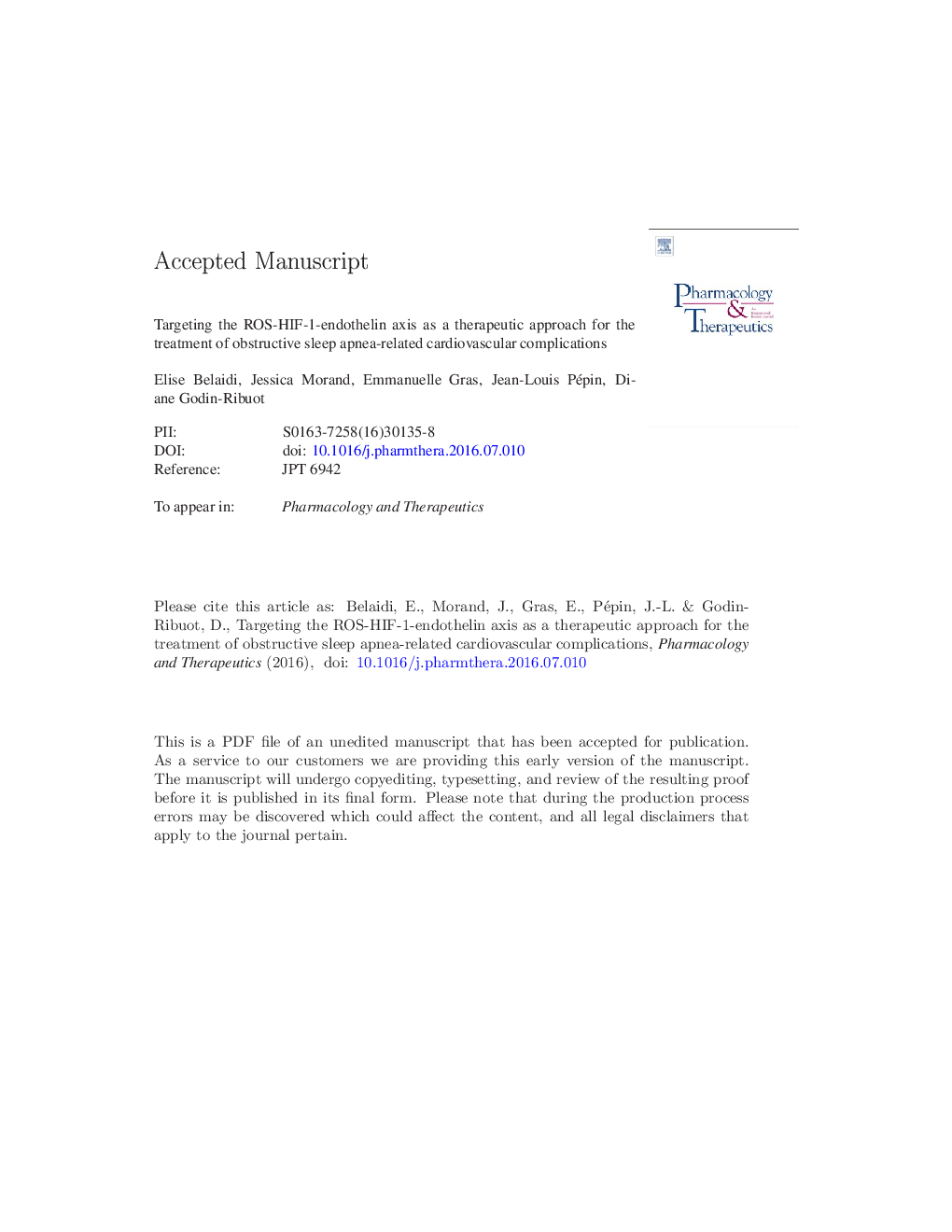| Article ID | Journal | Published Year | Pages | File Type |
|---|---|---|---|---|
| 5557805 | Pharmacology & Therapeutics | 2016 | 43 Pages |
Abstract
Obstructive sleep apnea (OSA) is now recognized as an independent and important risk factor for cardiovascular diseases such as hypertension, coronary heart disease, heart failure and stroke. Clinical and experimental data have confirmed that intermittent hypoxia is a major contributor to these deleterious consequences. The repetitive occurrence of hypoxia-reoxygenation sequences generates significant amounts of free radicals, particularly in moderate to severe OSA patients. Moreover, in addition to hypoxia, reactive oxygen species (ROS) are potential inducers of the hypoxia inducible transcription factor-1 (HIF-1) that promotes the transcription of numerous adaptive genes some of which being deleterious for the cardiovascular system, such as the endothelin-1 gene. This review will focus on the involvement of the ROS-HIF-1-endothelin signaling pathway in OSA and intermittent hypoxia and discuss current and potential therapeutic approaches targeting this pathway to treat or prevent cardiovascular disease in moderate to severe OSA patients.
Keywords
factor inhibiting HIF-1CPAPPKCNADPHHIF-1mTORPLCET-1CaMKaHIARBsNOxROSobstructive sleep apneamicro-ribonucleic acidendothelin-1NADPH oxidaseOsaleft ventriclecoronary artery diseasecardiovascular diseaseOxidative stressPhDsobstructive sleep apnea syndromeapnea–hypopnea indexFIHCADhypoxia inducible factor-1phospholipase CContinuous positive airway pressureBlood pressureangiotensin II receptor blockersMiRNAheart failureNitric oxidenicotinamide adenine dinucleotide phosphatemammalian target of rapamycinintermittent hypoxiaProtein kinase CReactive oxygen species
Related Topics
Health Sciences
Pharmacology, Toxicology and Pharmaceutical Science
Pharmacology
Authors
Elise Belaidi, Jessica Morand, Emmanuelle Gras, Jean-Louis Pépin, Diane Godin-Ribuot,
